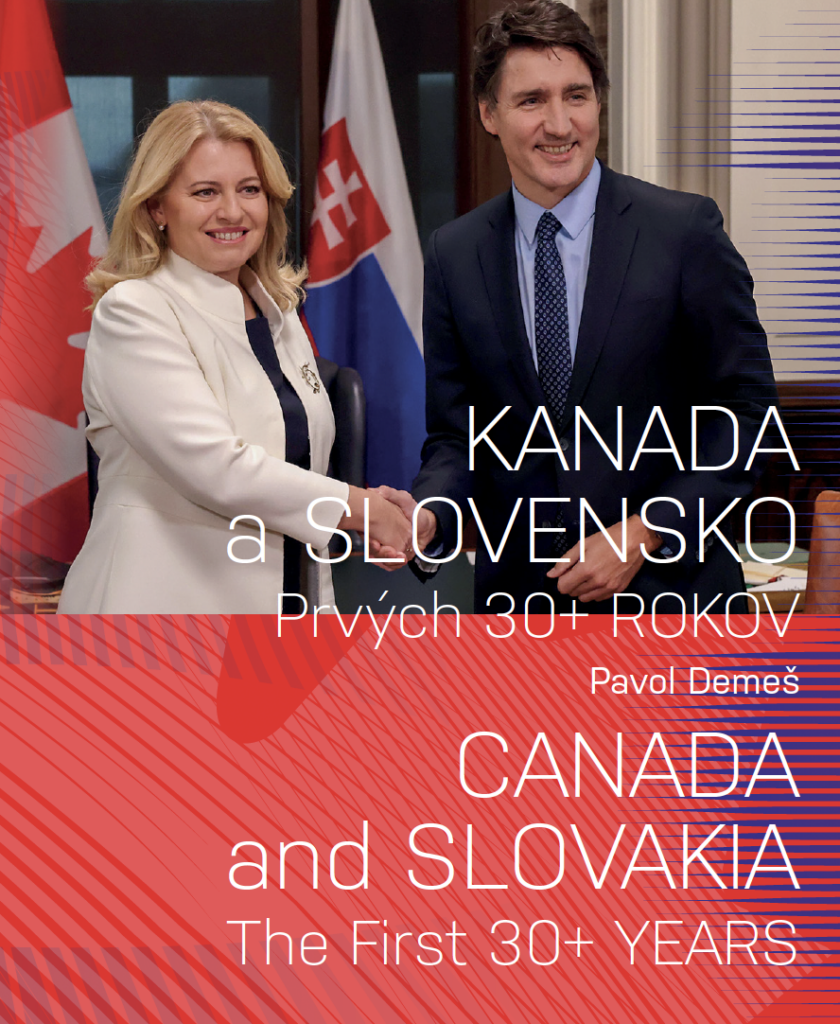
Publication Canada and Slovakia: The First 30 + Years by the foreign policy analyst Pavol Demeš is an expanded edition of his book on Canadian-Slovak relations published in 2018.
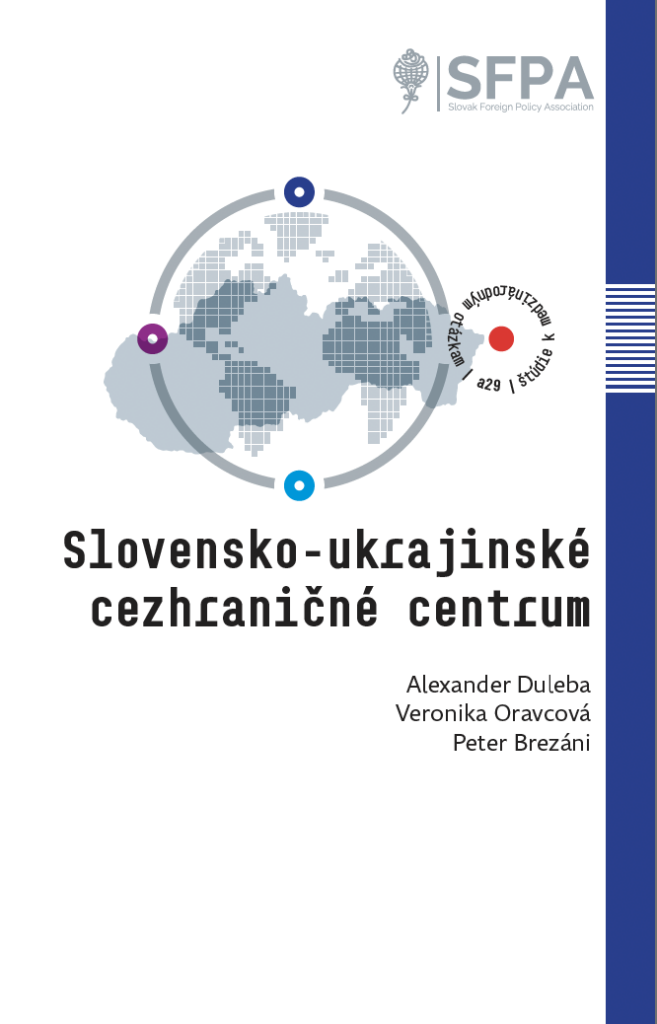
The aim of this analytical output is to prepare a plan for the establishment of the Slovak-Ukrainian Cross-Border Center (SKUAC), which will offer public benefit services to regional and local public territorial administration authorities, business entities, and non-governmental organizations in the Slovak-Ukrainian border area in the fields of education, research, and professional project support in the area of territorial development and cross-border cooperation.
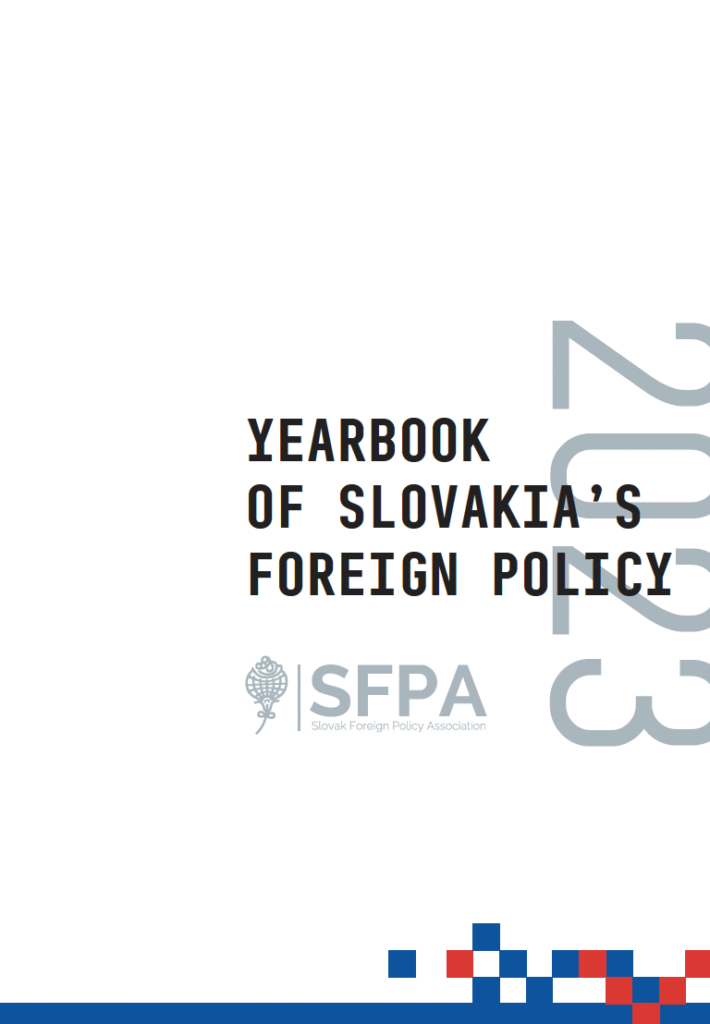
A summary of key aspects of Slovak foreign policy for the year 2023.
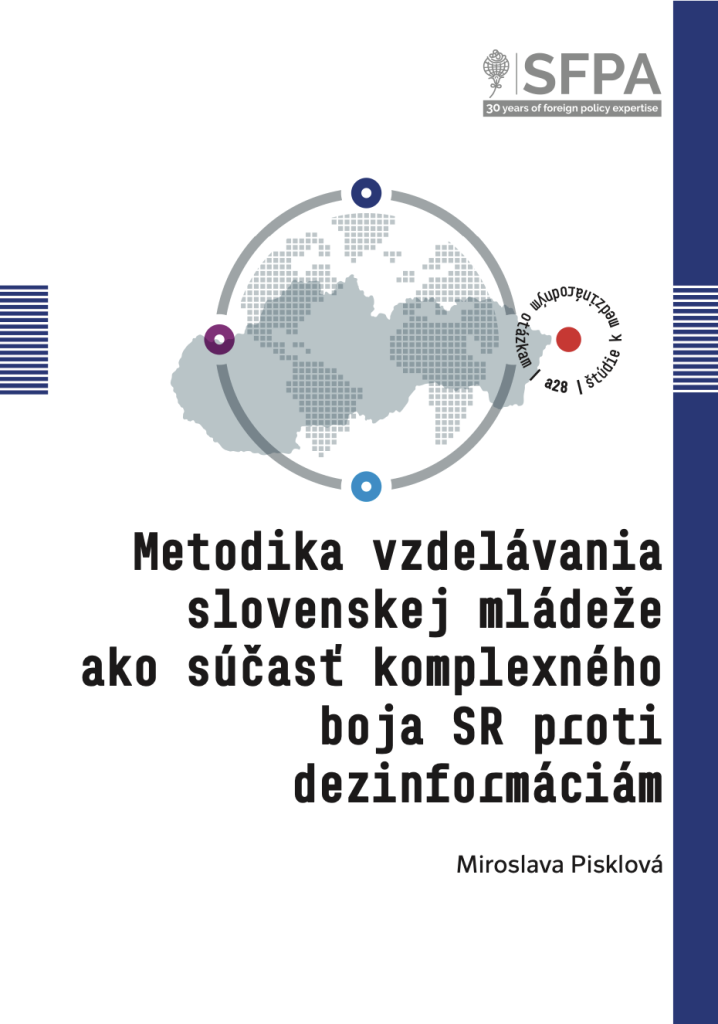
The publication combines knowledge from various relevant fields and contributes to the comprehensive fight against disinformation in Slovakia.
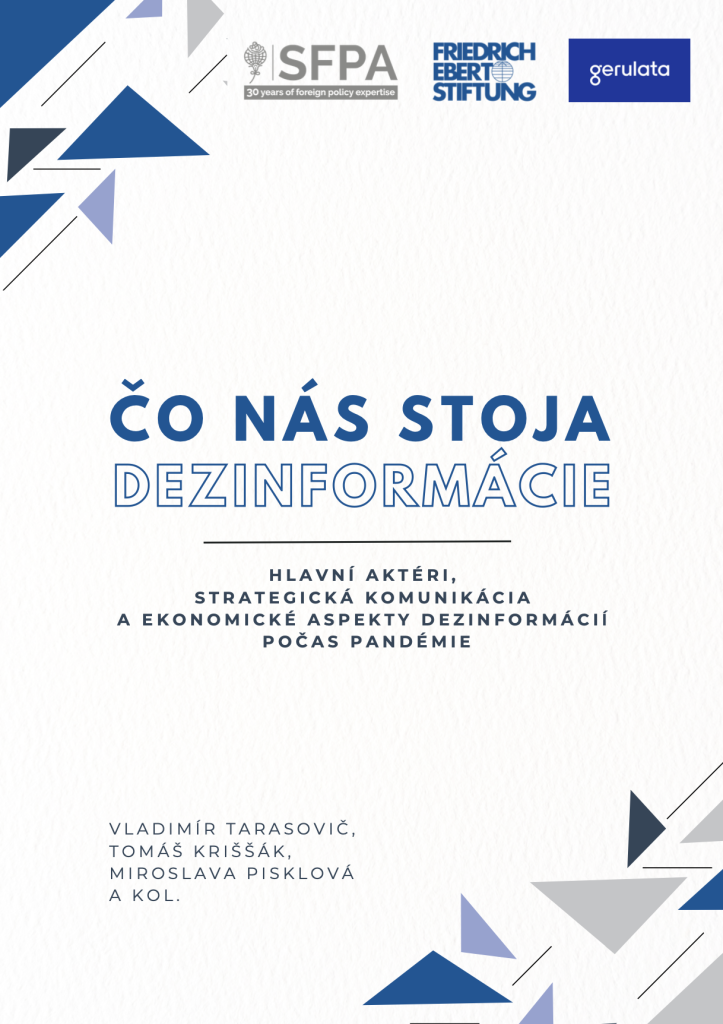
The purpose of this publication is to bring information from research aimed not only at the impact of the COVID-19 pandemic but also at the misinformation and conspiracy narratives on the economy of Slovakia from 2020 to 2022 closer to both professional and lay audiences.
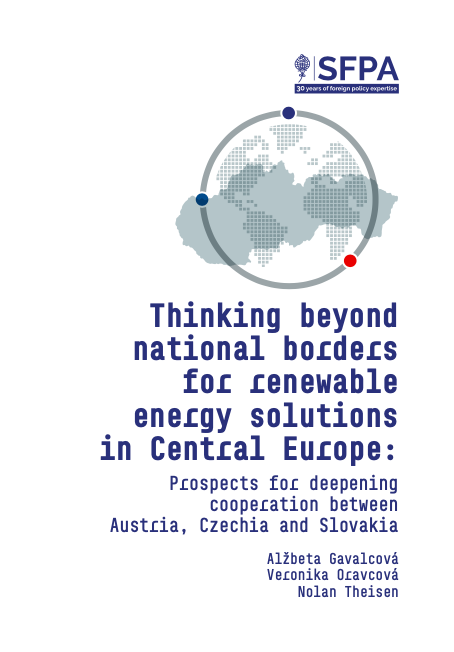
Alžbeta Gavalcová, Veronika Oravcová, Nolan Theisen
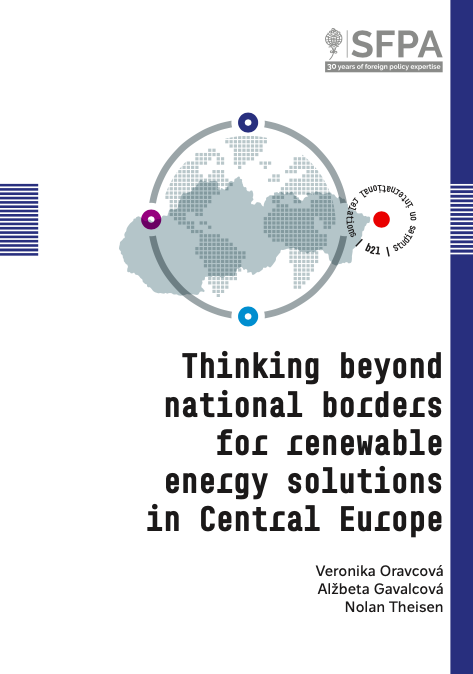
Veronika Oravcová, Alžbeta Gavalcová, Nolan Theisen
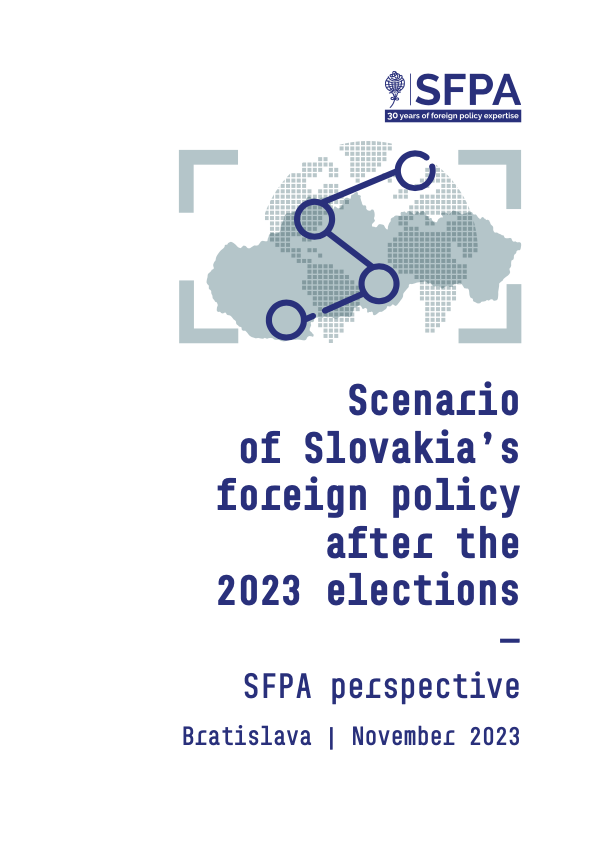
Bratislava, November 2023
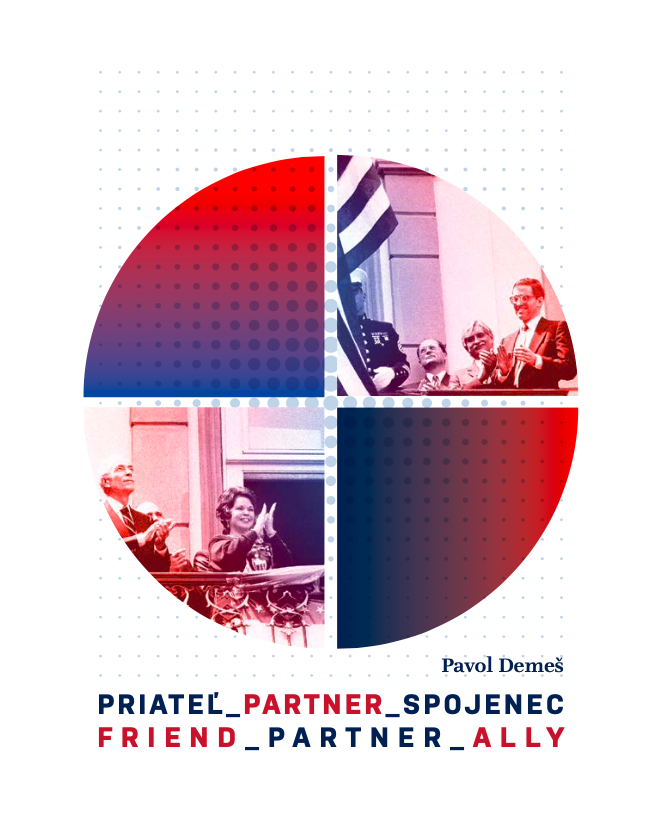
The Story of Slovak–American Relations from the Velvet Revolution until Today

The parliamentary elections of 30 September 2023 will have a direct impact on domestic policy and individual sectors. They will also shape Slovakia's foreign, European and security policy, for the next few years at least. Experts at the SFPA have created three postelection scenarios for these three policy areas, drawing on the available sources and their own expertise.
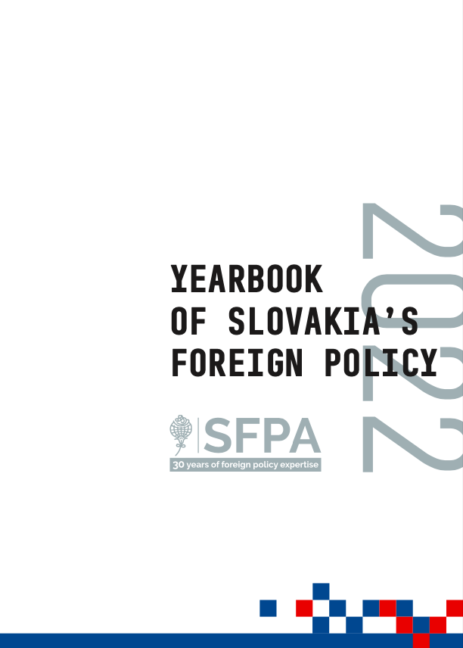
A summary of key aspects of Slovak foreign policy for the year.
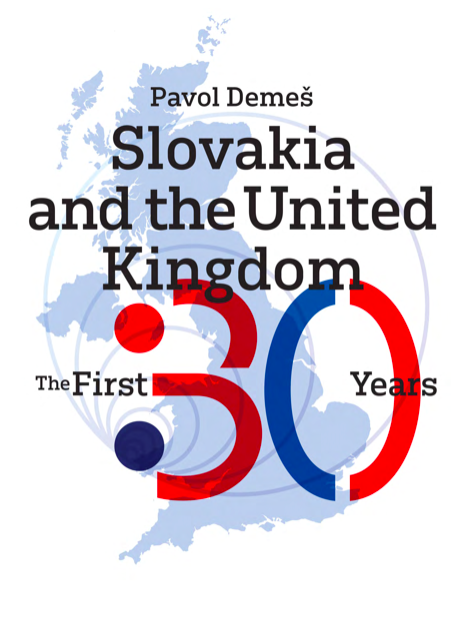
This bilingual publication is the first of its kind to explore the story of Slovak-British relations in modern history. It is a tribute to the first thirty years of mutual diplomatic relations.

Textbook Women in Diplomacy maps socio-cultural, economic and institutional barriers for women in the field of diplomacy and foreign policy, analyzes their impact on the current status of women and points to practical solutions for increasing inclusion and diversity in this area.
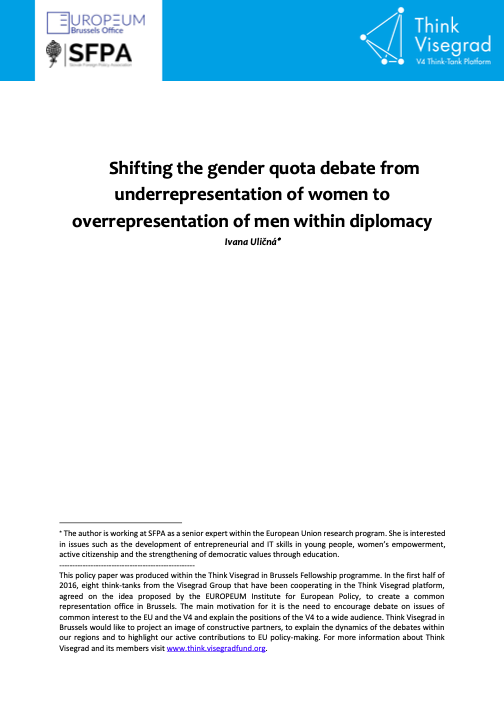
This policy paper was produced within the Think Visegrad in Brussels Fellowship programme.
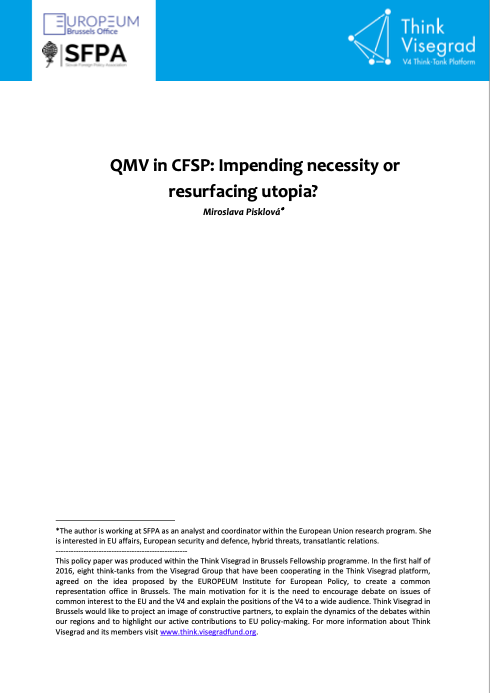
This policy paper was produced within the Think Visegrad in Brussels Fellowship programme.
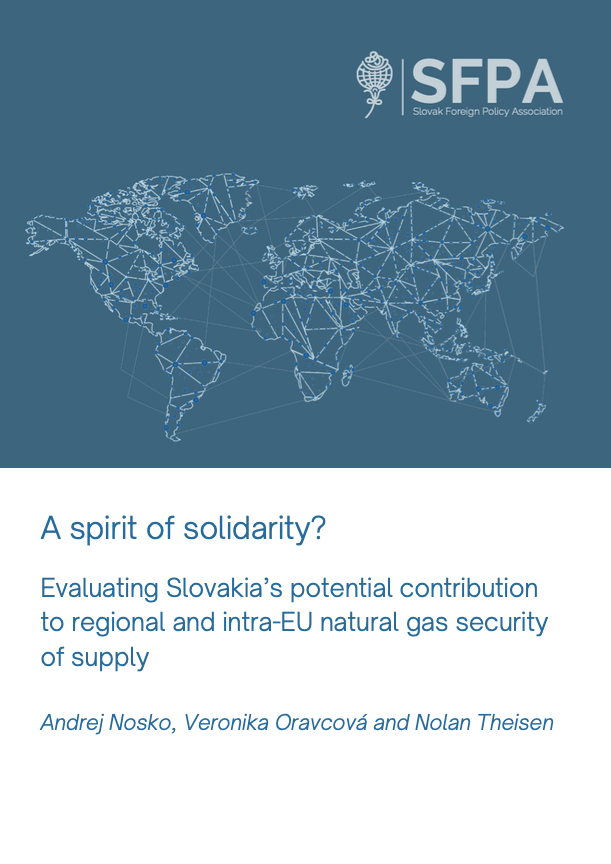
Andrej Nosko, Veronika Oravcová and Nolan Theisen
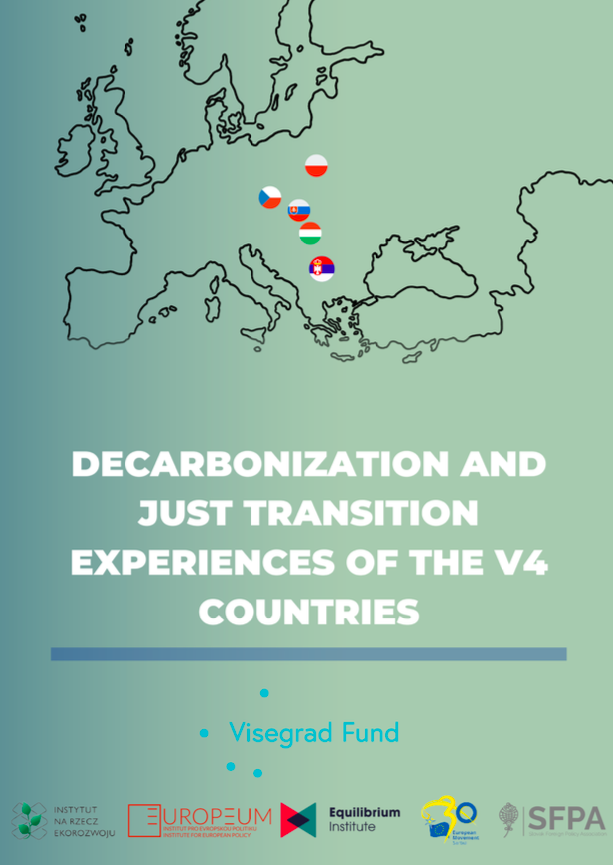
This project was made possible through Visegrad+ Grant from the International Visegrad Fund.
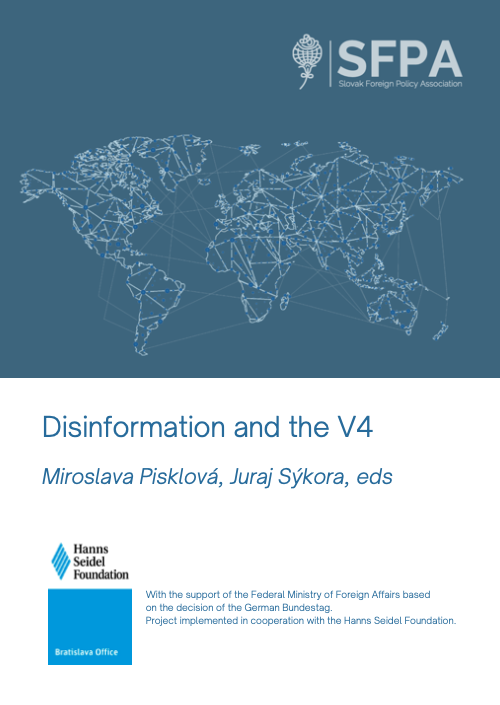
This project was implemented by the Research Center of the Slovak Foreign Policy Association with the support of the Hanns Seidel Foundation.
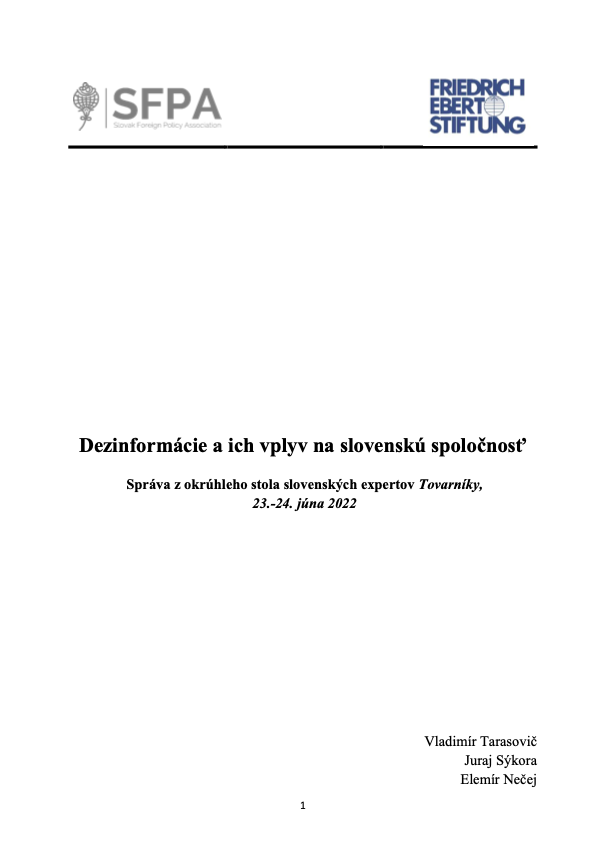
Report of the round table of Slovak experts, Tovarníky, 23-24 June 2022.
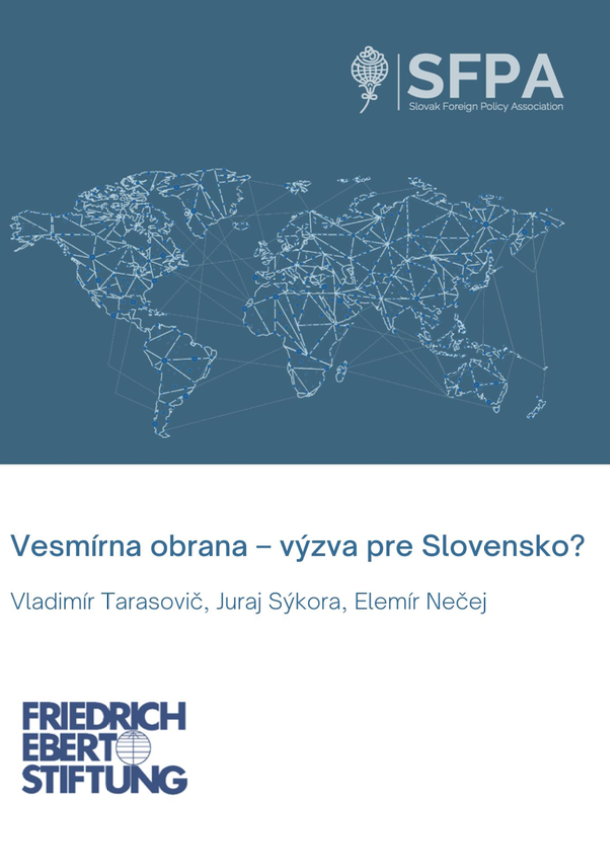
The project was created in cooperation with Friedrich-Ebert-Stiftung - Representation in the Slovak Republic.
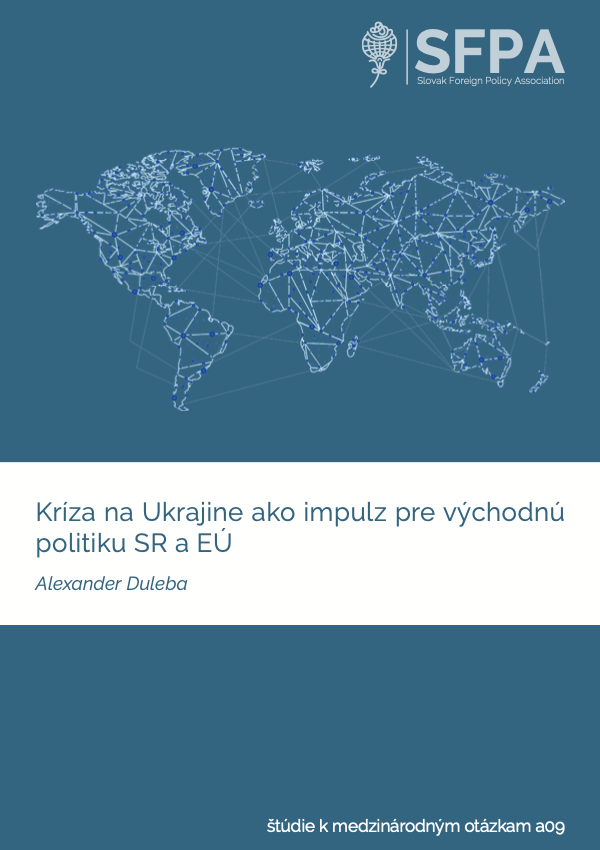
Analysis of Slovak public attitudes and recommendations for Slovak foreign policy.
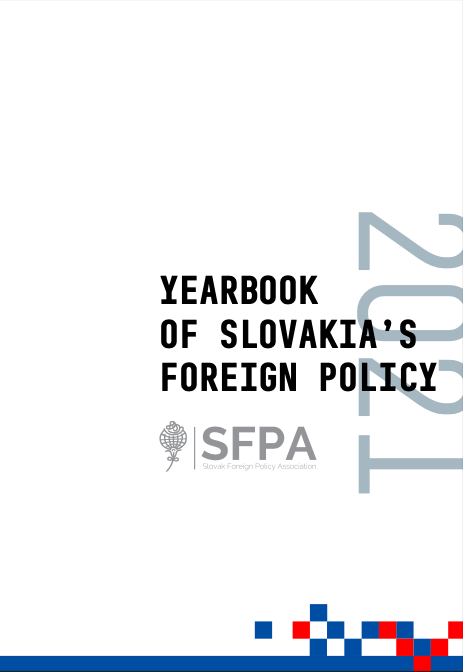
A summary of key aspects of Slovak foreign policy for the year.
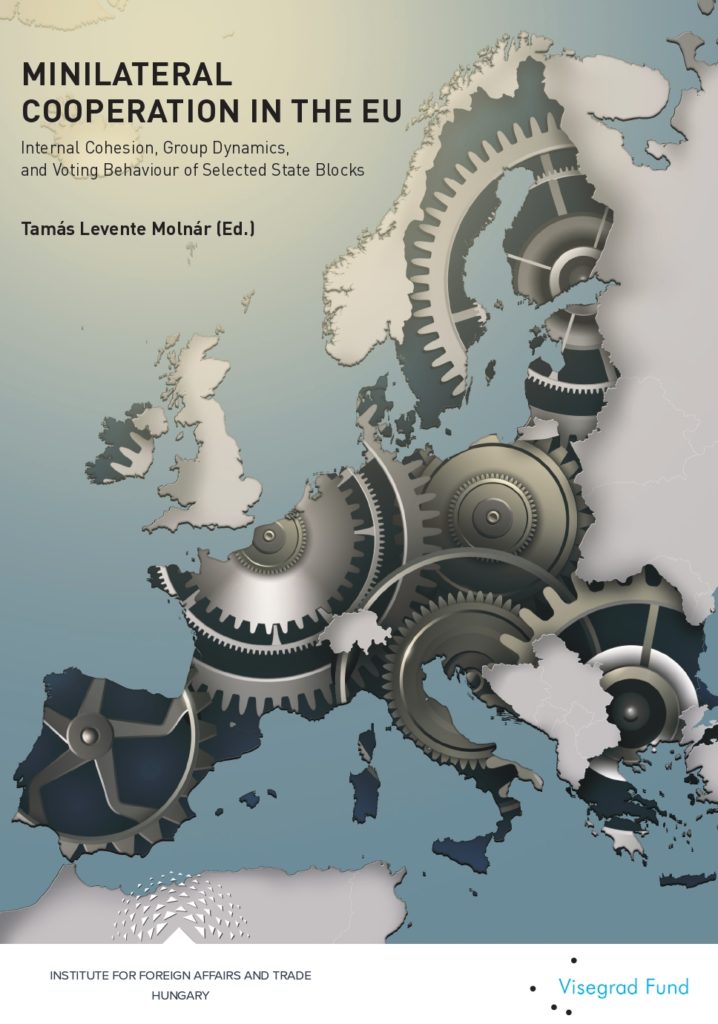
Internal Cohesion, Group Dynamics, and Voting Behaviour of Selected State Blocks
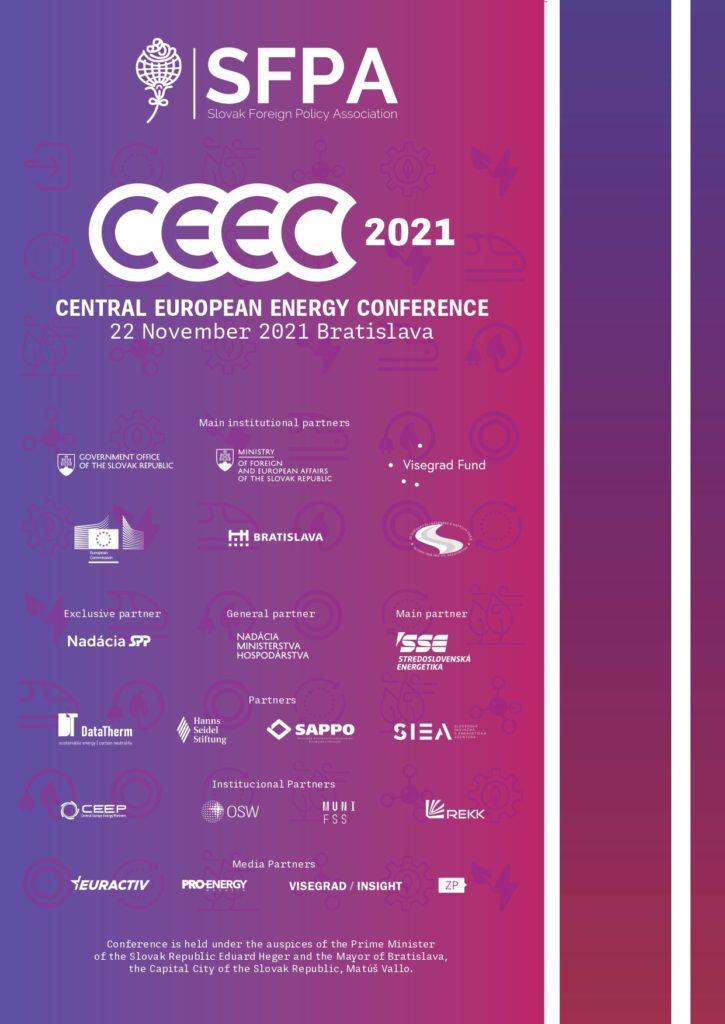
The report is summarizing the most important ideas from speakers during the 15th Central European Energy Conference (CEEC), which took place on November 22, 2021 in Bratislava.
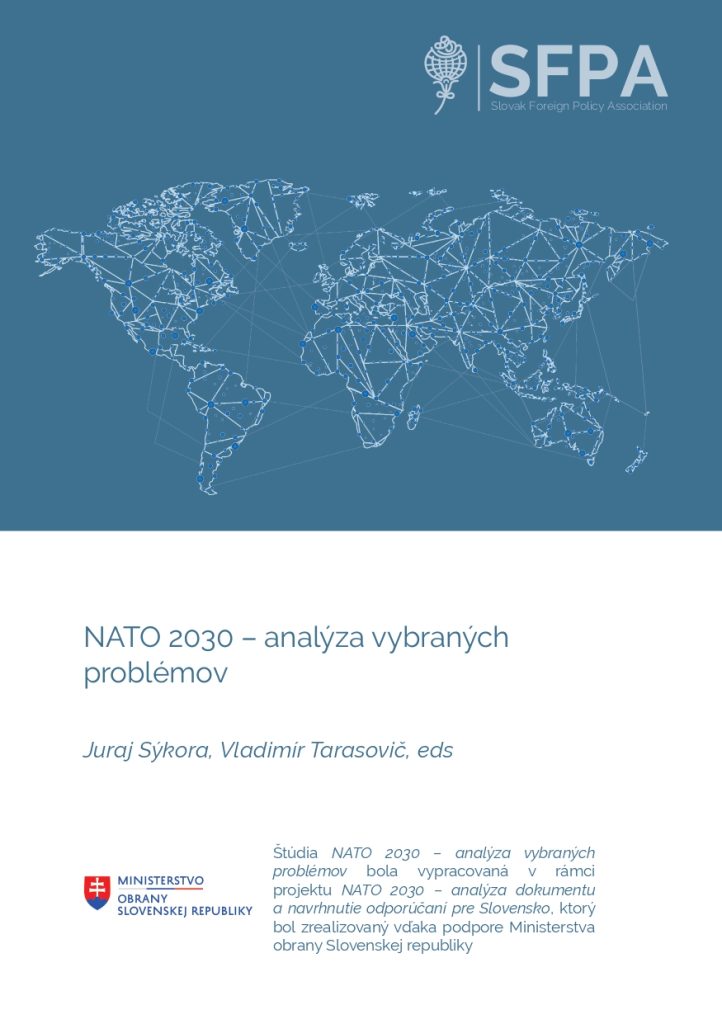
The NATO 2030 Study - Analysis of Selected Issues was prepared within the framework of the NATO 2030 Project - Document Analysis and Proposed Recommendations for Slovakia, which was implemented thanks to the support of the Ministry of Defence of the Slovak Republic.
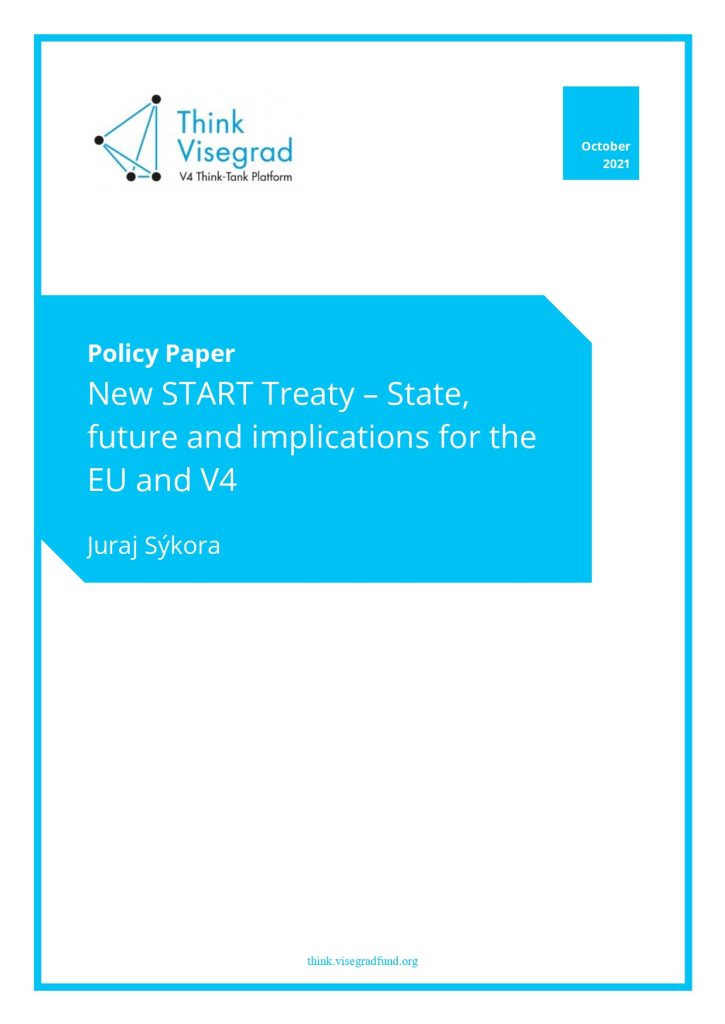
In this policy paper "New START Treaty – State, future and implications for the EU and V4", written in cooperation with the Think Visegrad think tank, Juraj Sýkora, a Junior Researcher at SFPA, analyses the current state of nuclear arms control, the New START Treaty, what it contains and who it concerns. The policy paper also analyses the prospects until 2026, when the extension of the Treaty expires.
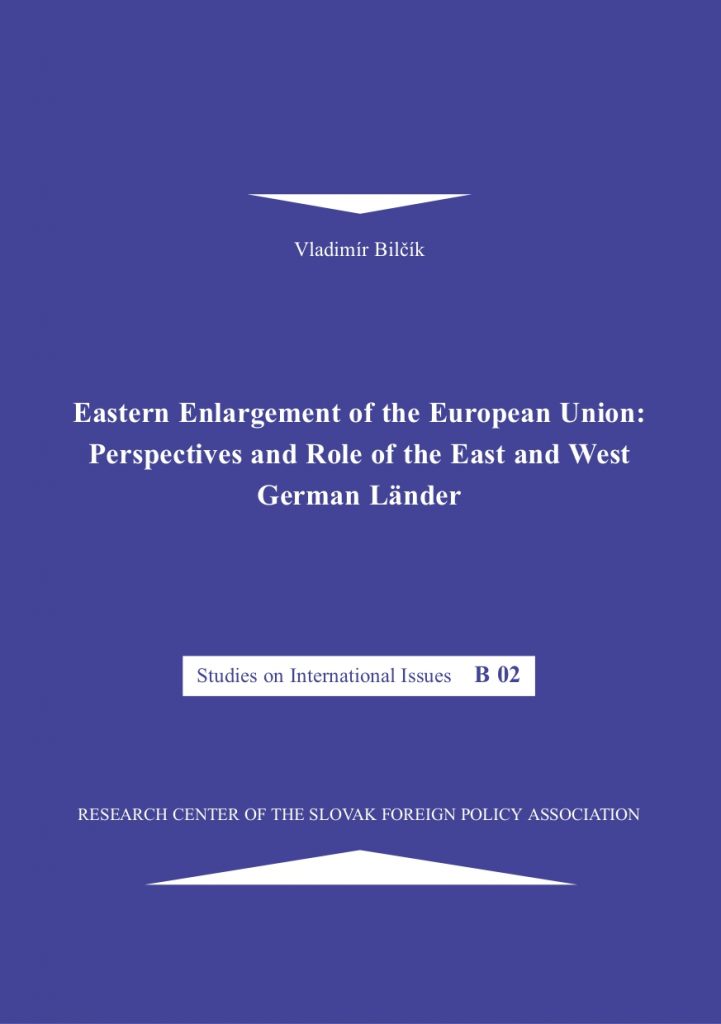
The following study is based on my M.Phil. dissertation that I submitted at the University of Oxford in April 1999. I am grateful for the financial assistance from the Henry R. Kravis Scholarship and Maurice Latey Award that enabled me to carry out the research for this study. I would like to thank Timothy Garton Ash and David Hine for their guidance, advice and patience. I am also grateful to Vladimír Handl for his comments.
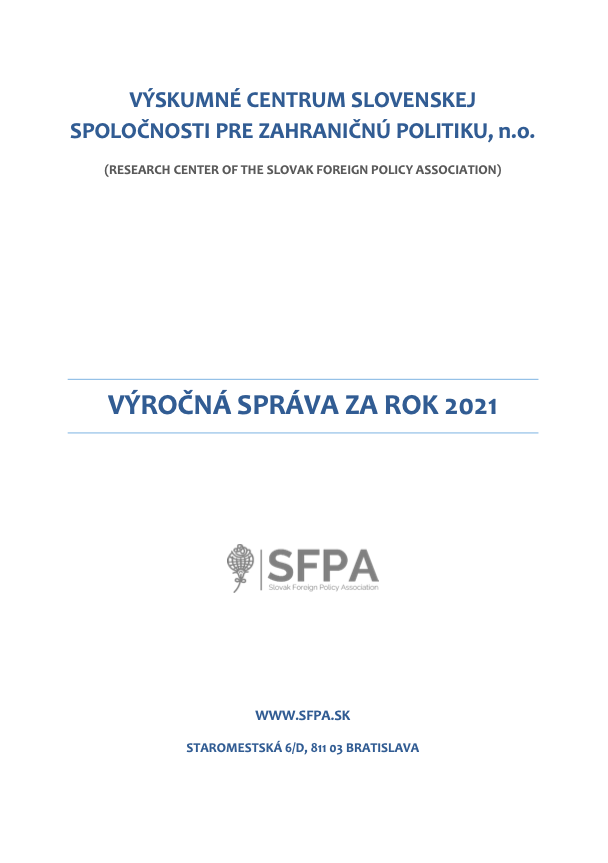
We bring you a summary of SFPA activities in the 2021 Annual Report.
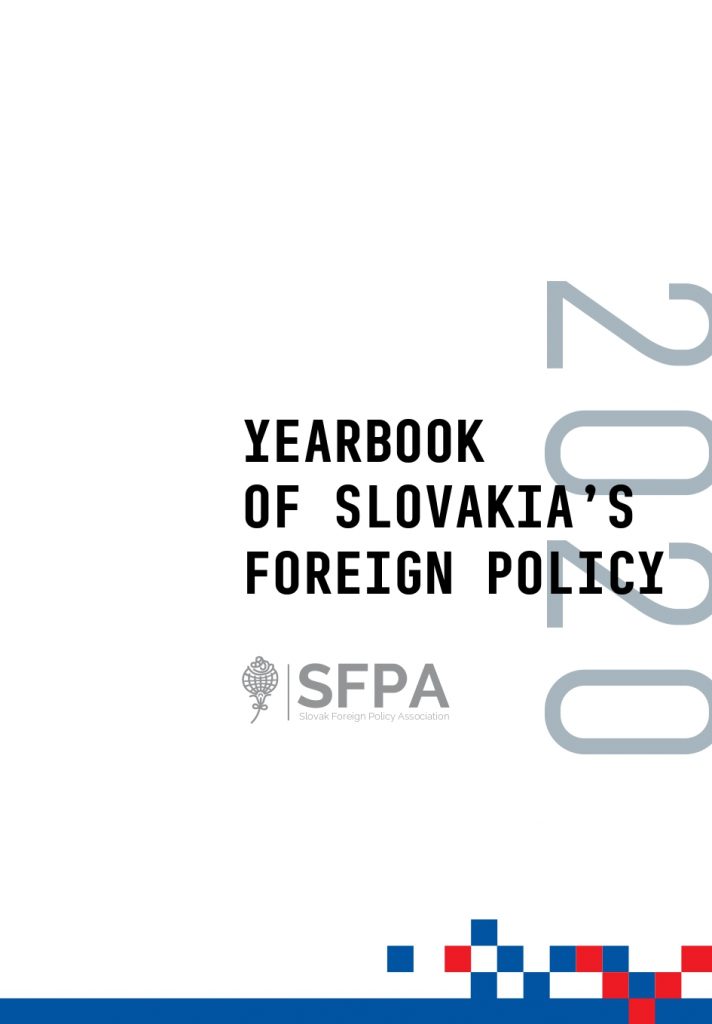
Summary of key aspects of Slovak foreign policy for a given year.
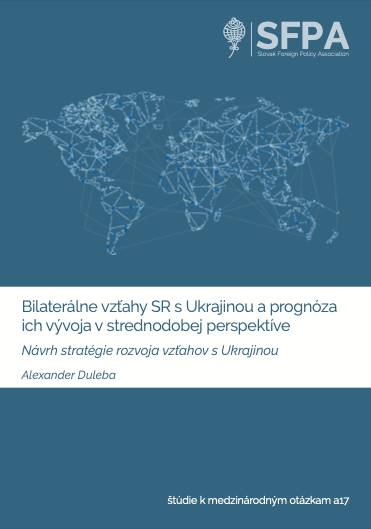
Draft strategy for the development of relations with Ukraine.
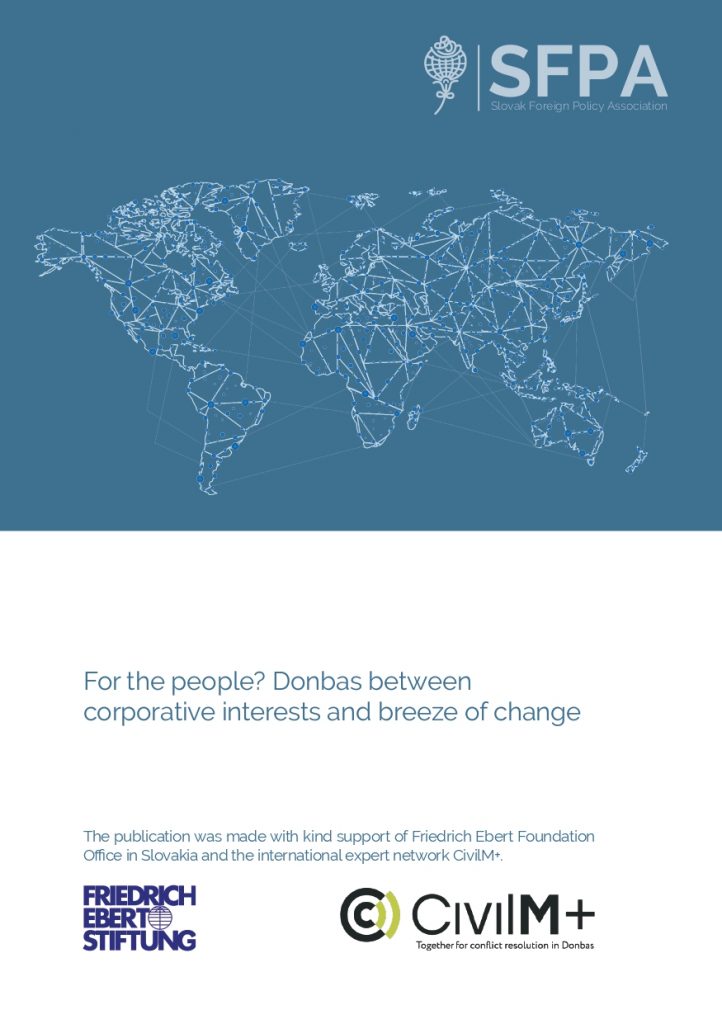
We believe this study proffers, among other things, an explanation for the existing situation in the region and identifies future trends and tendencies. We also believe that our recommendations provide both accurate as well as normative insights to all those who are interested in Ukraine and to key players in the field, including the OSCE, helping the conflict-affected country and its people.
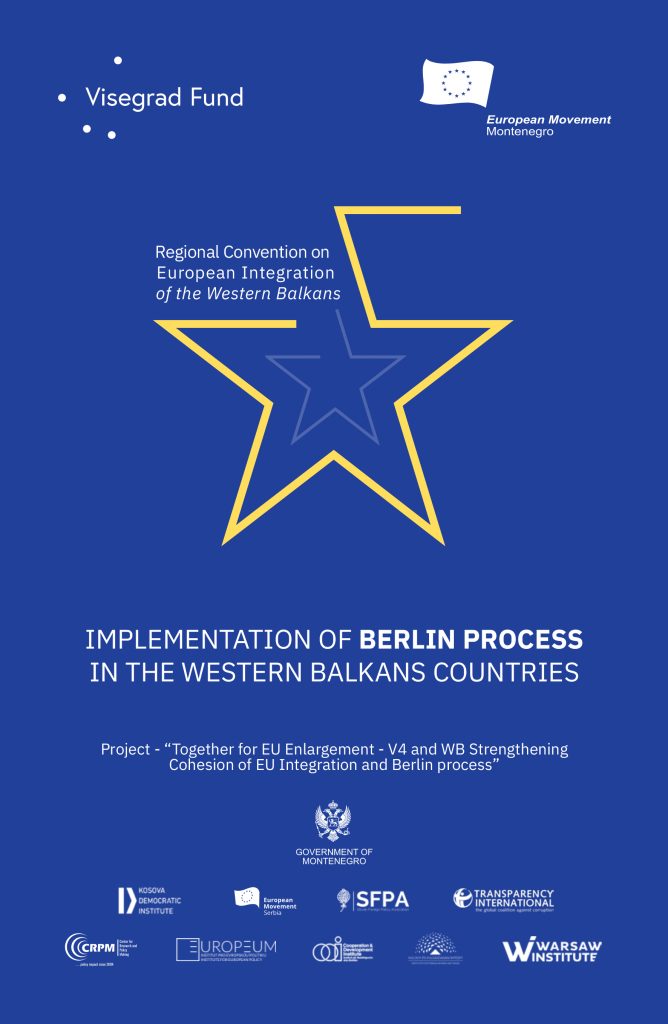
Policy study “Implementation of Berlin process in the Western Balkans countries” that is in front of you is a result of deep and committed work of all our partners and colleagues within the project, and it represents general overview of major facts within the analyzed area.
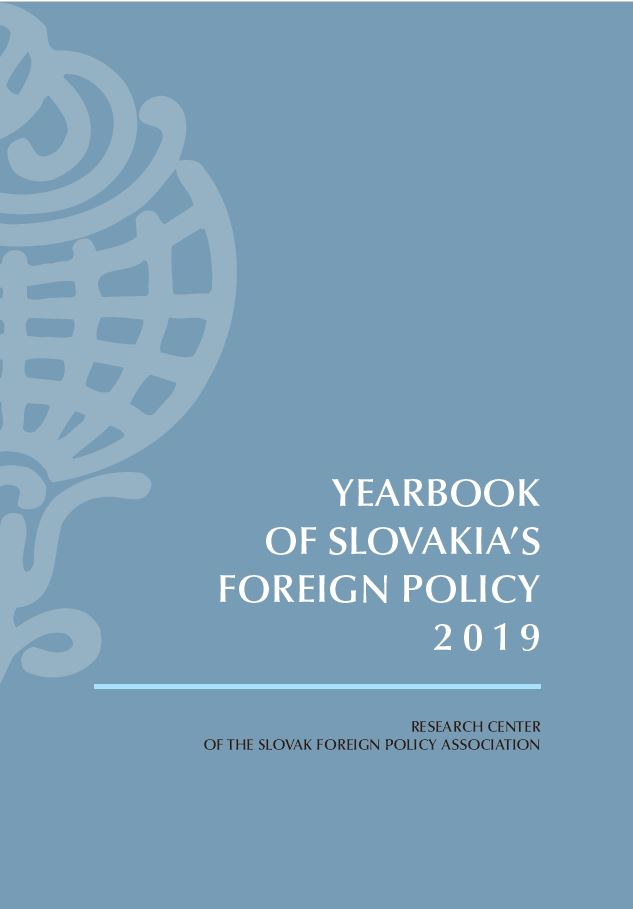
Summary of key aspects of Slovak foreign policy for a given year.
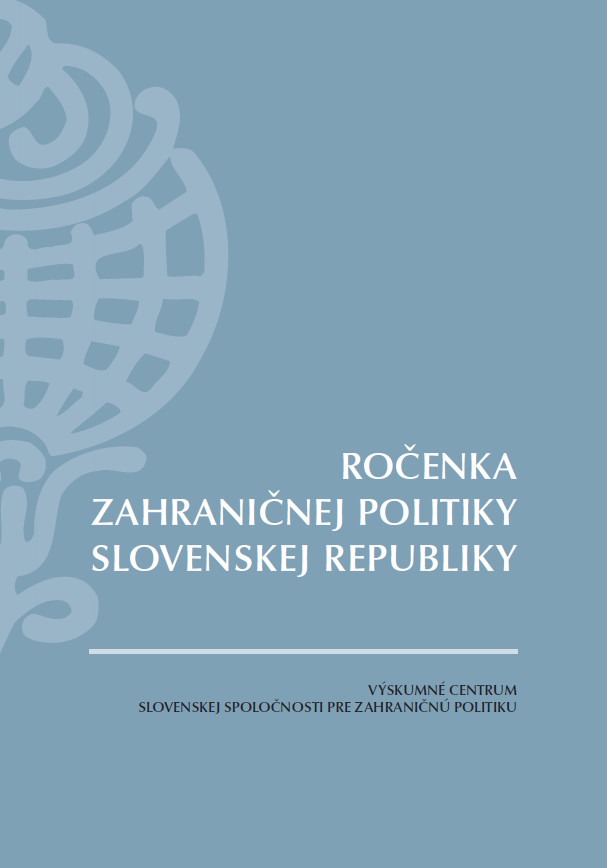
Summary of key aspects of Slovak foreign policy for a given year.

Summary of key aspects of Slovak foreign policy for a given year.

Summary of key aspects of Slovak foreign policy for a given year.

Summary of key aspects of Slovak foreign policy for a given year.

Summary of key aspects of Slovak foreign policy for a given year.
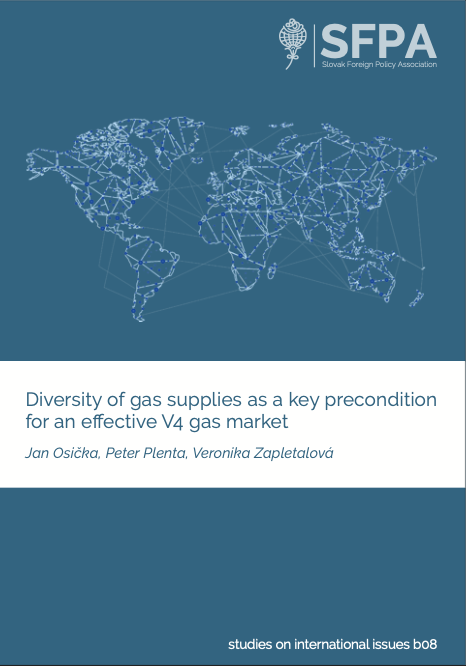
Jan Osička, Peter Plenta, Veronika Zapletalová

Summary of key aspects of Slovak foreign policy for a given year.

Summary of key aspects of Slovak foreign policy for a given year.

Summary of key aspects of Slovak foreign policy for a given year.

Summary of key aspects of Slovak foreign policy for a given year.

Summary of key aspects of Slovak foreign policy for a given year.

Summary of key aspects of Slovak foreign policy for a given year

Summary of key aspects of Slovak foreign policy for a given year.
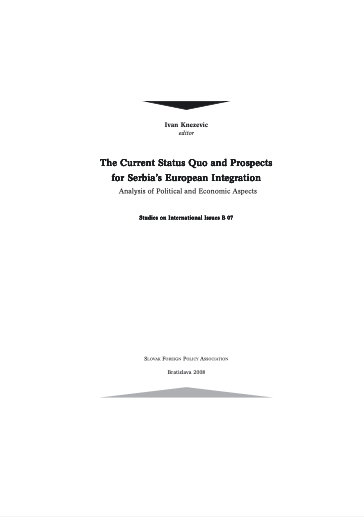
Dragan Djukanovic, Miladin Kovacevic, Ivan Nikolic

Summary of key aspects of Slovak foreign policy for a given year.

Summary of key aspects of Slovak foreign policy for a given year.

Summary of key aspects of Slovak foreign policy for a given year.

Summary of key aspects of Slovak foreign policy for a given year.
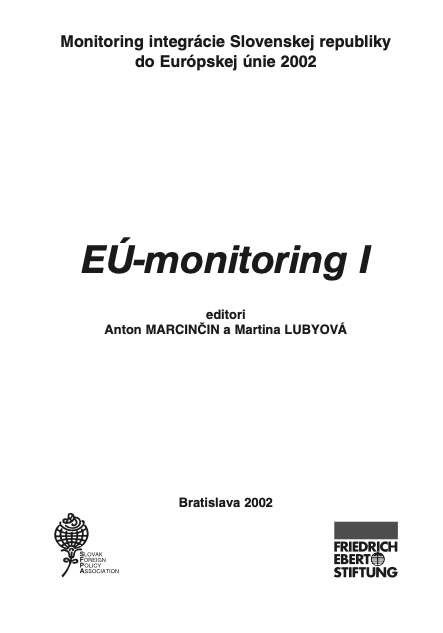
Anton Marcinčin, Martina Lubyová (eds.)
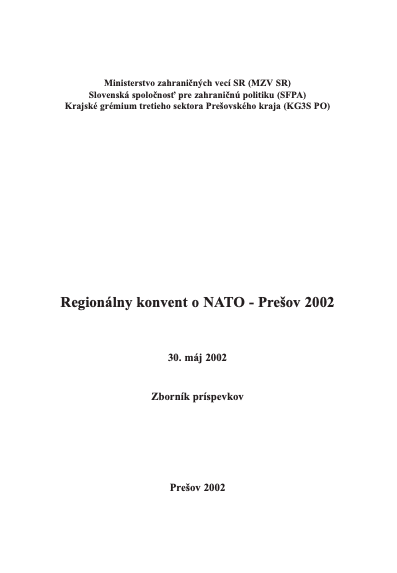
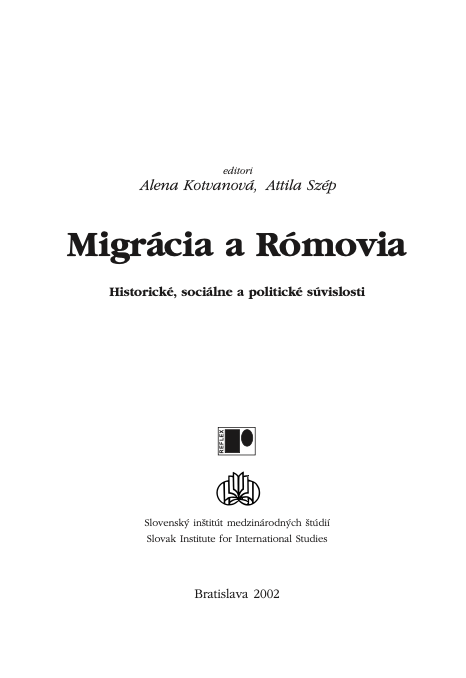
Alena Kotvanová, Attila Szép (eds.)

Summary of key aspects of Slovak foreign policy for a given year.
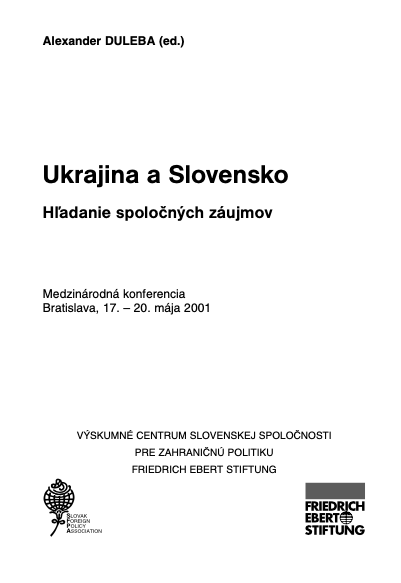
International Conference, Bratislava, 17 - 20 May 2001
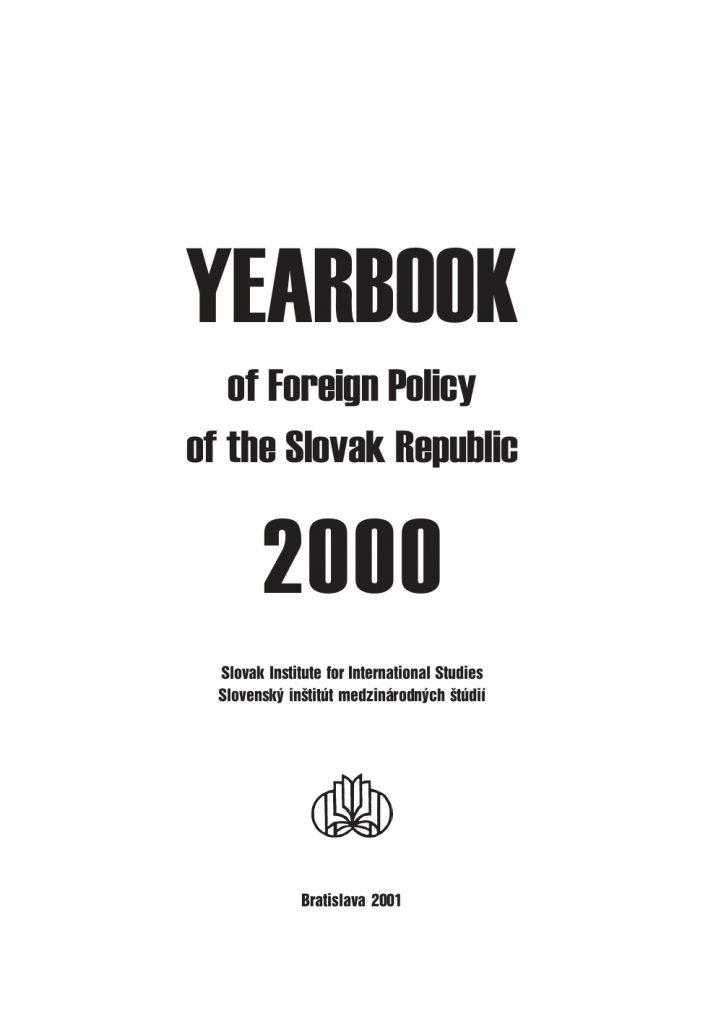
Summary of key aspects of Slovak foreign policy for a given year.
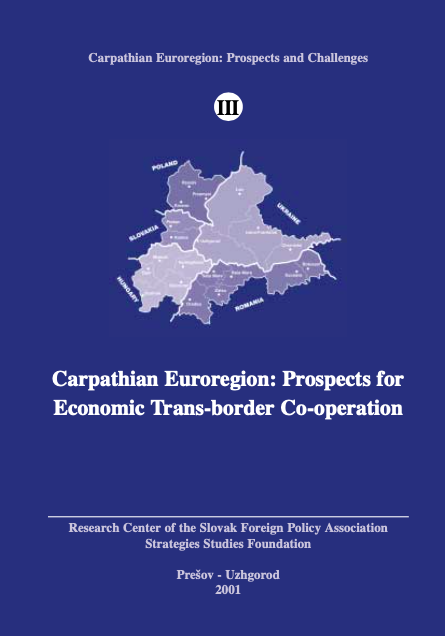
Carpathian Euroregion: Prospects and Challenges, Workshop #3, Hotel Senator (Prešov, Slovakia), June 28, 2001
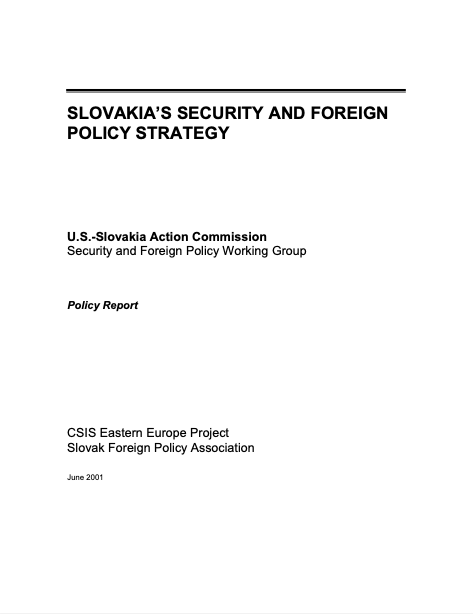
U.S.-Slovakia Action Commission, Security and Foreign Policy Working Group (Policy Paper)
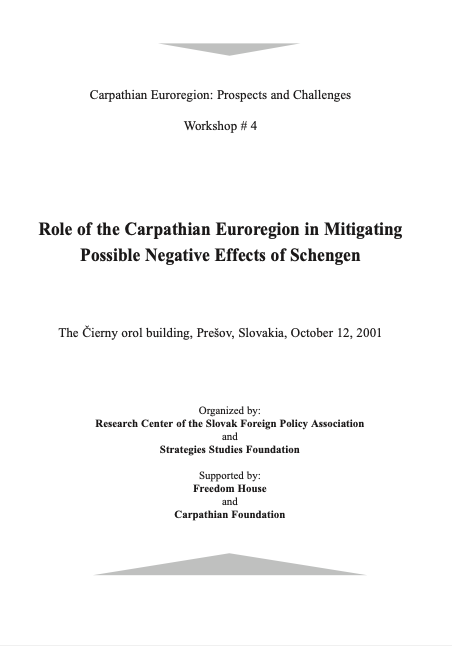
Carpathian Euroregion: Prospects and Challenges, Workshop #4, The Čierny orol building, Prešov, Slovakia, October 12, 2001
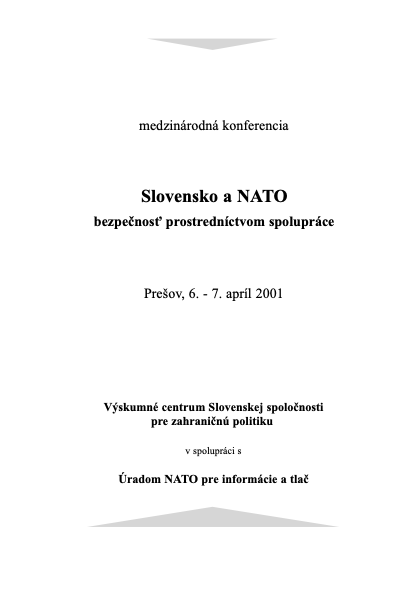
International Conference, Prešov, 6 - 7 April 2001
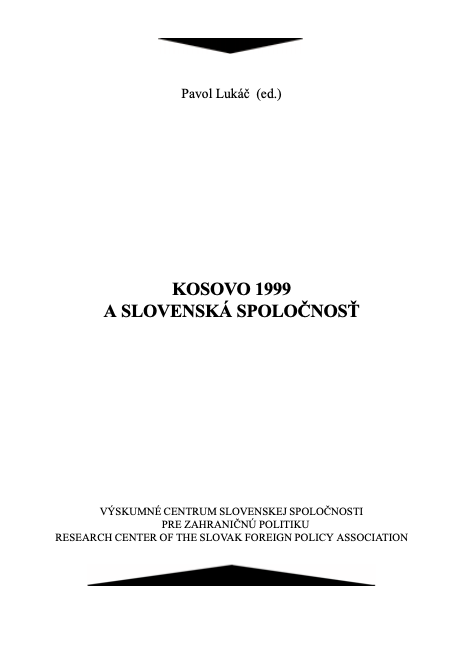
Pavol Lukáč (ed.)
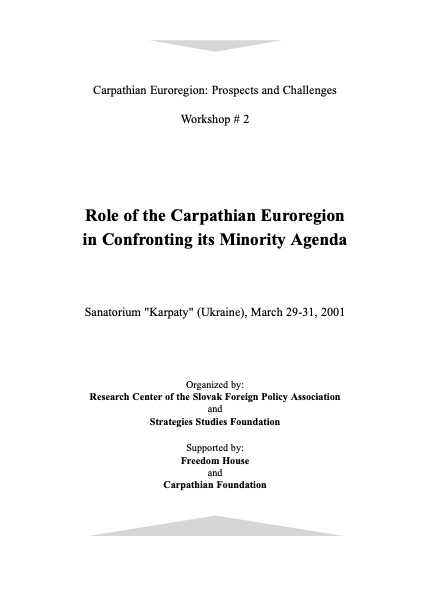
Sanatorium "Karpaty" (Ukraine), March 29-31, 2001
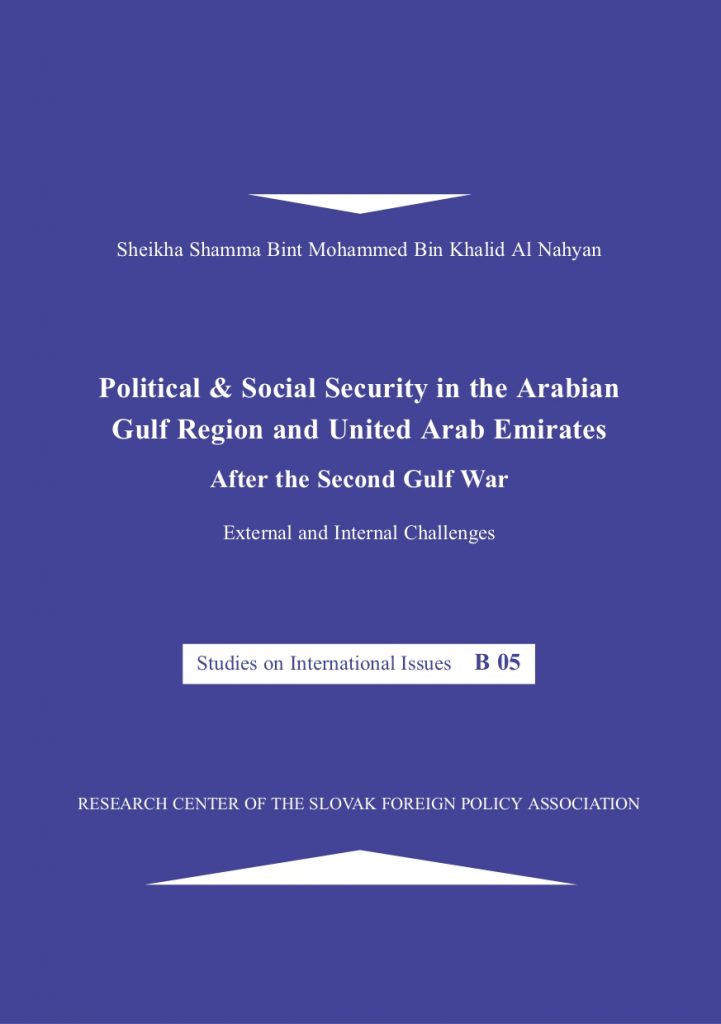
Cieľom tejto štúdie je identifikovať regionálne a medzinárodné výzvy pre bezpečnosť v oblasti Arabského zálivu, ktoré sú výsledkom vývoja v posledných desaťročiach, ako aj preskúmať ich vplyv na bezpečnosť v tejto oblasti všeobecne a najmä v Spojených arabských emirátoch (SAE). Cieľom tejto štúdie je aj vypracovanie stratégie na posilnenie politickej a sociálnej bezpečnosti SAE.

The aim of this study is to identify regional and international challenges to security in the Arabian Gulf region resulting from developments over the last decades as well as to examine their impact on the security in this area generally and in the United Arab Emirates (UAE) particularly. This study is also aimed at drawing up a strategy on strengthening political and social security of the UAE.
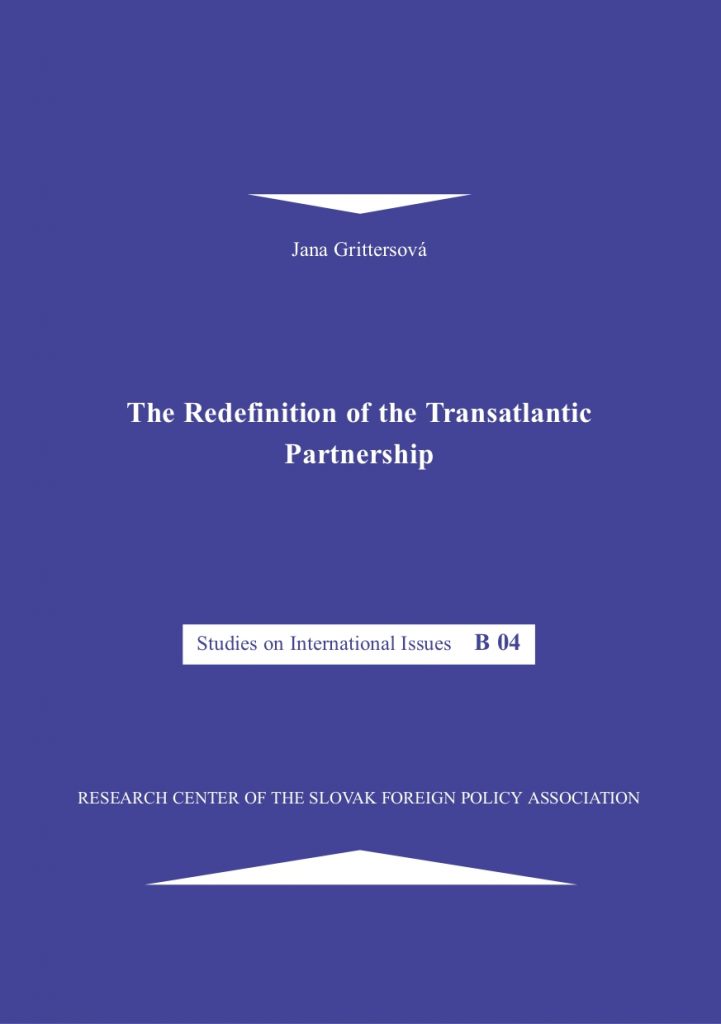
Traditionally, the dominant agenda in transatlantic relations has been military security governed by the US and its nuclear preponderance. The “balance of threat” resulted in the primacy of the military sphere over the economic sphere. Since 1985 the US-EU agenda has changed fundamentally due to the disappearance of the Soviet- American security agenda, structural developments in the world economy, and the attempt on both sides to re-examine their respective roles in the international system with respect to the economic and security spheres.
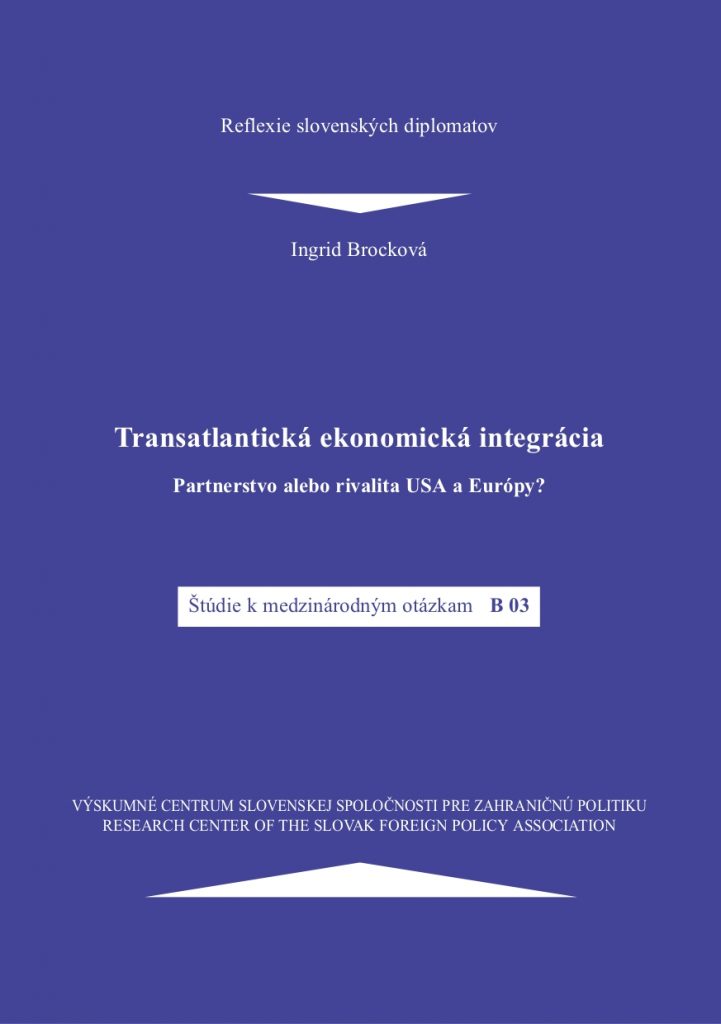
Transatlantic interdependence and shared responsibility for global leadership have now grown so much that the EU and the US need to come up not only with a new strategy and institutional capacity to manage bilateral relations, but also with a blueprint for dealing with global economic issues. The scenarios for the further development of transatlantic relations are varied: pessimistic and optimistic.
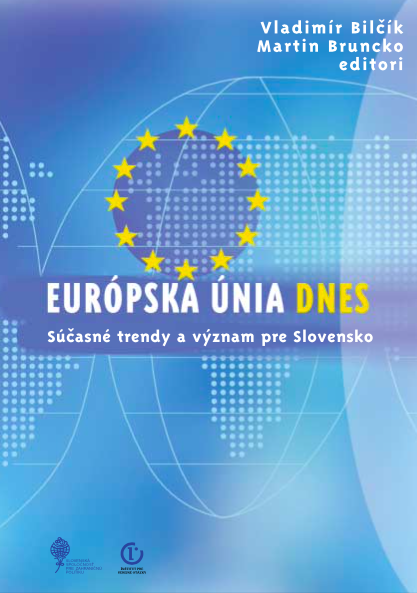
Vladimír Bilčík and Martin Bruncko (editors)
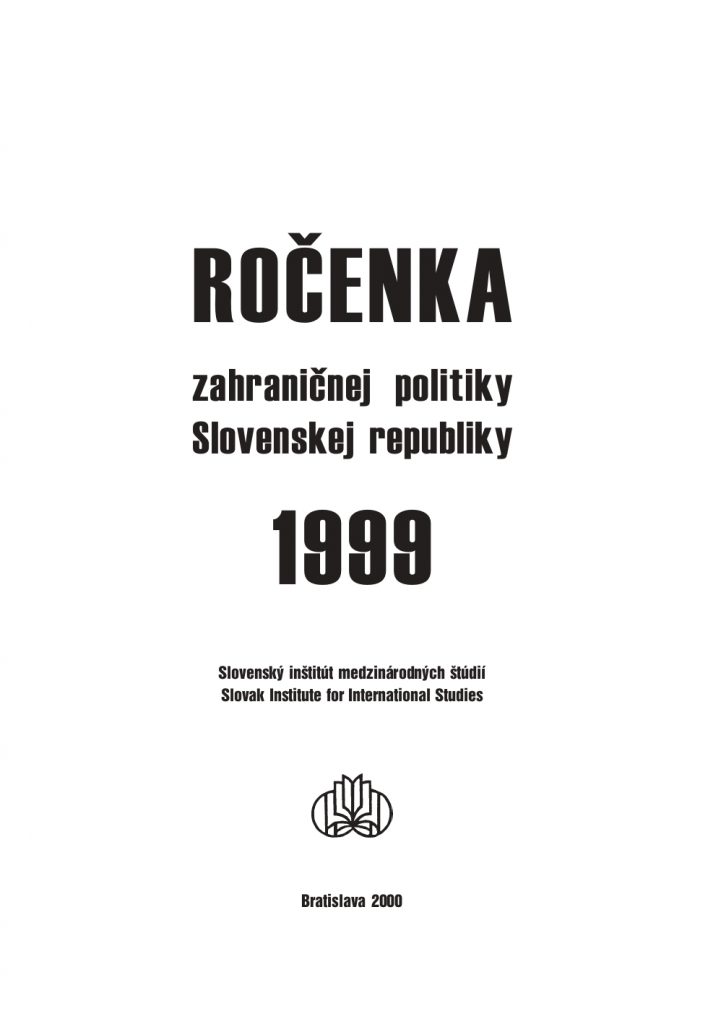
A summary of key aspects of Slovak foreign policy for the year.

Translation of the book by the diplomat and publicist who is currently Ambassador of Sweden to the Czech Republic and the Slovak Republic, based in Prague, His Excellency Ingmar Harlsson: Europe and Nations (European Nation or Europe of Nations?).
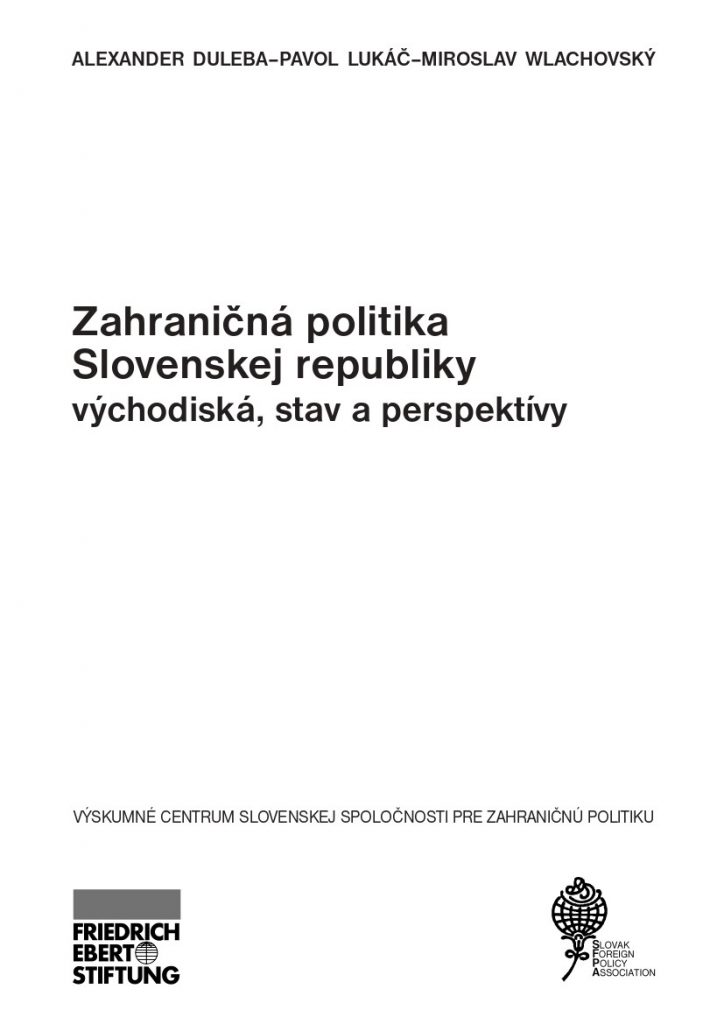
"High-quality foreign policy and the consolidation of Slovakia's position in the international arena are among the priorities of nation-building, therefore it should receive adequate political attention...If modern Slovakia wants to succeed in international competition, and this is its only chance, it must overcome (these) false ideas, open itself to external influences and promote its natural interests in the international arena through a professional foreign policy with the backing of an informed public."
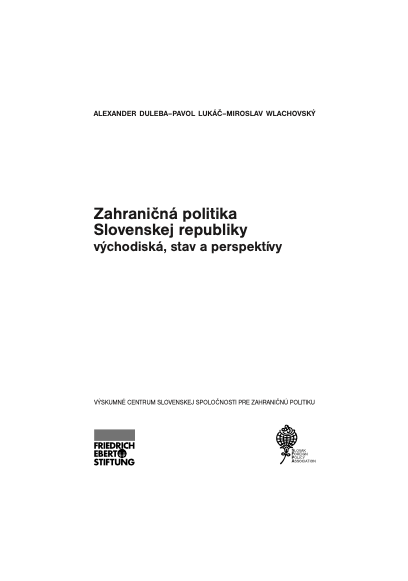
Background, status and perspectives
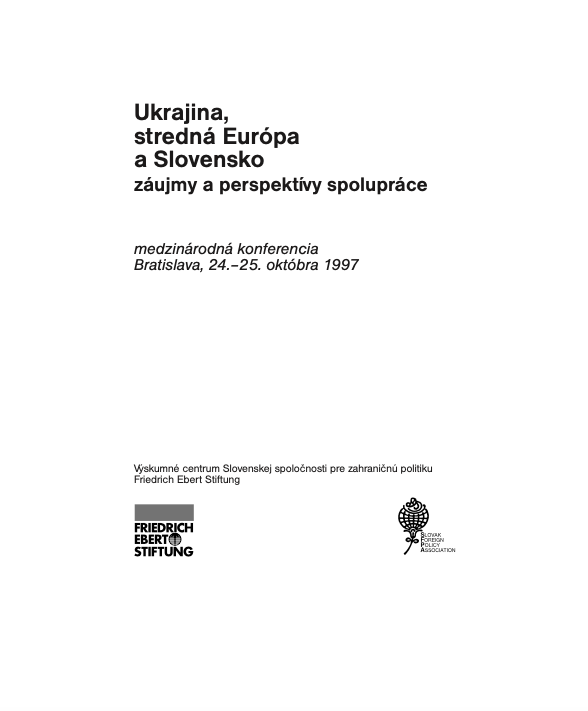
Interests and prospects for cooperation- (International Conference Bratislava, 24-25 October 1997).
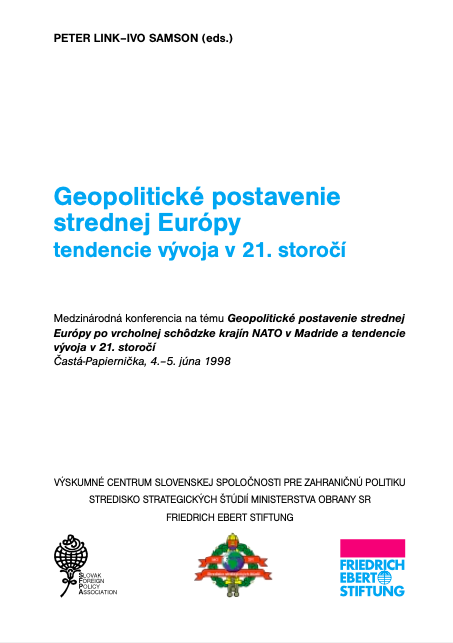
Peter Link - Ivo Samson (eds.)